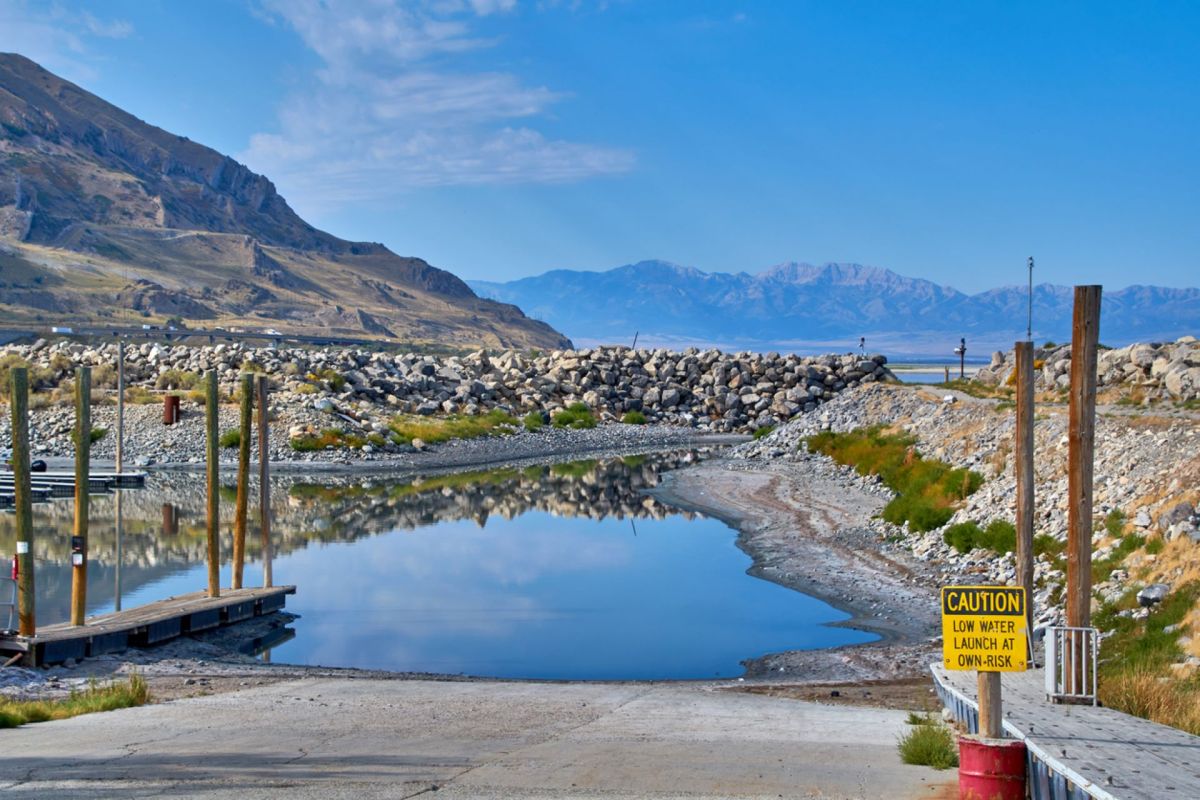The largest saline lake in the Western Hemisphere is struggling to survive, but a donation from one of Utah's wealthiest and most influential institutions may help save it.
The Church of Jesus Christ of Latter-day Saints gifted about 20,000 acre-feet of water to the Utah Department of Natural Resources from its shares in the North Point Consolidated Irrigation Co., The Salt Lake Tribune reported in March. One acre-foot of water — enough to cover one acre of land one foot deep — supports about two households.
"This water donation will make a real difference to the lake and the future of our state," Gov. Spencer Cox said. "... The Great Salt Lake is a critical asset environmentally, ecologically and economically, and we all need to work together to protect and preserve it."
The Tribune reported the contribution will be vital in sustaining $1.9 billion of the state's economy as well as wetlands, habitats, and migrating birds.
"This donation is invaluable because it's a permanent, dedicated source of water that will benefit the lake year after year," Joel Ferry, executive director of the Utah Department of Natural Resources, stated in the news release. "I appreciate the collaborative effort among the church, DNR and conservation groups."
Mormonism is a huge part of Utah culture, and religious institutions around the world are setting similar examples.
More than 100 churches have joined the nonprofit Pennsylvania Interfaith Power and Light, which "inspires and mobilizes people of faith and conscience to take bold and just action on climate change."
A Massachusetts church took a cue from the French, installing solar panels to cover its parking lot as shade structures and also clean sources of energy.
And at the behest of bishops, British Catholics are reviving the tradition of abstaining from meat on Fridays, canceling out pollution equivalent to that produced by 82,000 people flying from London to New York.
In Utah, the Great Salt Lake is "on the verge of collapse," the Tribune stated, having hit two record lows recently. A healthy snowpack in the winter gave it a boost, but it ran a 1.2 million acre-foot water deficit and needed to rise 4,200 feet to preserve wildlife, recreation, and lake-based industries such as brine shrimp and mineral harvesting.
"The Great Salt Lake and the ecosystem that depends on it are so important," W. Christopher Waddell, the church's first counselor in the Presiding Bishopric, said. "The church wants to be part of the solution because we all have a responsibility to care for and be good stewards of the natural resources that God has given to us. We invite others to join with us to help."
Join our free newsletter for cool news and cool tips that make it easy to help yourself while helping the planet.









